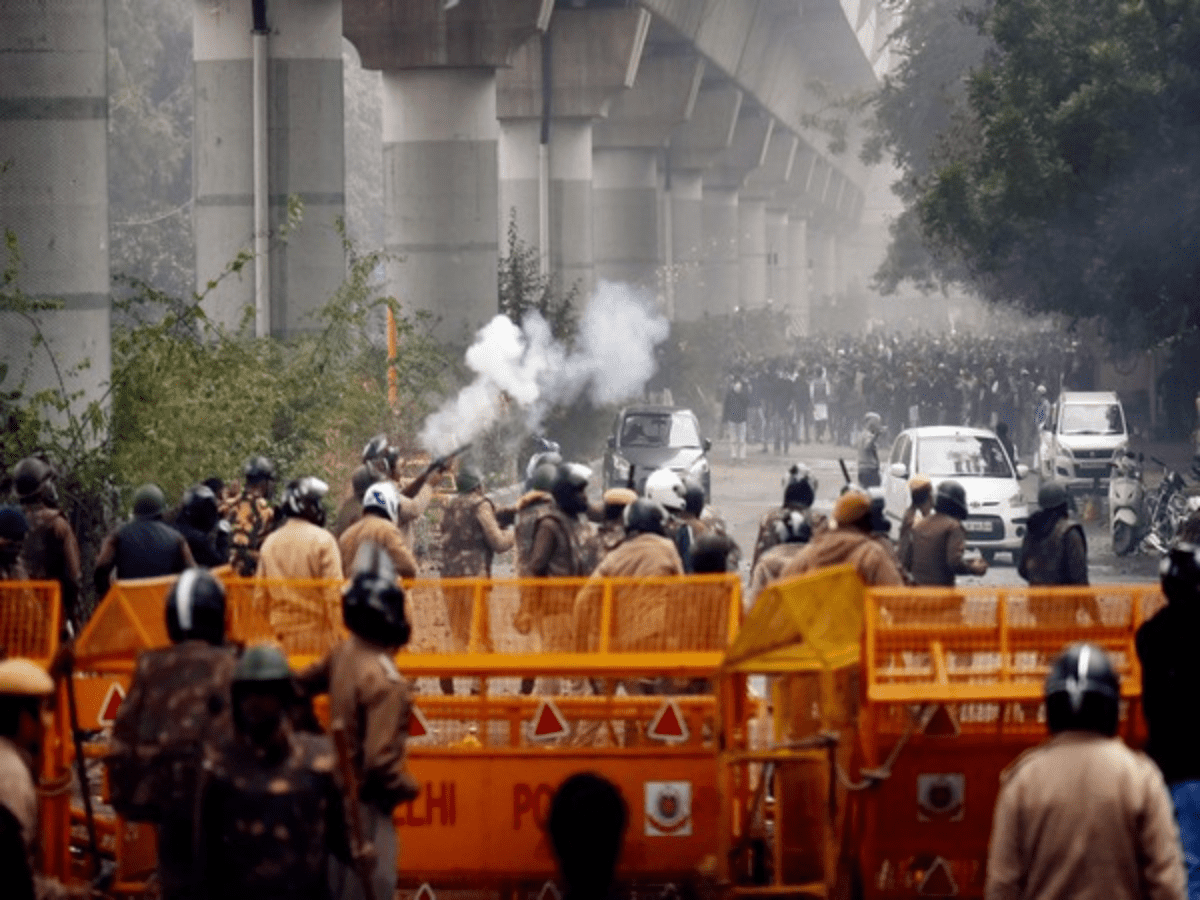
New Delhi: A Sessions court here has ordered framing of charges against Faisal Farooq, the owner of Rajdhani school, and 18 others for their alleged involvement in a case of arson, attempt to murder and criminal conspiracy during the 2020 northeast Delhi riots.
The court was hearing a case where a riotous mob, on the purported instigation of Farooq, allegedly torched DRP School and adjoining properties near Shiv Vihar Tiraha on February 24, 2020. The 18 accused persons were reportedly part of the riotous mob.
According to the prosecution, the mob was using Rajdhani School as its base for the purpose of throwing petrol bombs and stones at the properties of a particular community and also robbed valuable items from the school.
“I find that (all) accused persons are liable to be tried for offences punishable under sections 120 B (criminal conspiracy) of the Indian Penal Code read with sections 147 (rioting ) 148 (rioting, armed with a deadly weapon) 302 (murder) 153A (punishment for promoting enmity between different groups on the ground of religion, race, place of birth, residence, language, etc.), 395 (dacoity)…of the IPC,” Additional Sessions Judge Pulastya Pramachala said in an order passed on Friday.
Charges are to be framed against them also under sections 427 (punishment for committing mischief and thereby causing loss or damage to the amount of Rs fifty or upwards), 435 (Mischief by fire or explosive substance with intent to cause damage to an amount of 100 rupees or upwards), 436 (mischief by fire or explosive substance with intent to destroy house, etc.) and 450 (house-trespass in order to the committing of any offence punishable with imprisonment for life) of the IPC, the judge said.
All accused except for Farooq were also liable to be tried under sections 147, 148,153 A, 395,427, 435, 436, 450, 307 (attempt to murder) of the IPC read with sections 120 B, 149 (every member of unlawful assembly guilty of offence committed in prosecution of common object) and 188 ( disobedience to order duly promulgated by public servant) of the IPC, the judge added.
“Faisal Farooq is also liable to be tried for offence punishable under sections 147, 148, 307, 395, 427, 435, 436, 450 of the IPC read with 120 B of the IPC, and for the offence punishable under sections 153A and 505 (statements conducing to public mischief) of the IPC,” the judge said.
ASJ Pramachala also put on trial Mohd. Ansar under the provisions of the Arms Act.
Regarding the identification of the accused persons as members of the riotous mob, the judge said the rule of prudence can be applied only after trial, at the time of assessment of the evidence on the parameters of credibility.
Rejecting the arguments for the discharge of the accused, such as call details record (CDR) locations and the delay in registration of FIR and recording statement of witnesses, the judge said, “I have considered all these contentions, but I do not find the discharge of any accused being made out on the basis of these contentions, in view of the evidence of identification of all the accused persons as part of the riotous mob.”
ASJ Pramachala said while CDR locations were not the basic premise of the prosecution’s case and were used as additional evidence, the absence of the test identification parade (TIP) could not be claimed as a ground for discharge.
The judge also rejected the plea of delay for seeking discharge, saying “It is well known that riots had shaken Delhi and so even police agency could have been under tremendous pressure on account of riots and the consequent flow of complaints and by that time already Covid 19 virus had knocked the door of our society and was on continuous rise, leading to nationwide lockdown .”
The court said the credibility of any witness can be looked into only after conducting the trial and there was evidence of arson on the day of the alleged incident.
Regarding the alleged conspiracy, the court said, “In the present case, the description of evidence shows the deliberation among Farooq and other accused persons, which was subsequently followed by an attack on DRP School and other nearby properties of Hindus.”
It said prior to the attack, a large number of people of a particular community had assembled at Farooq’s school, which was followed by continuous instances of pelting of stones and petrol at nearby properties and DRP School, and this reflected “preparations made on the basis of a meeting of mind among the accused persons to indulge into a particular act as alleged in this case.”
Noting the complaint and statements of witnesses, the court said it was “beyond doubt that an unlawful assembly was formed with a common object to attack upon the properties belonging to persons from the Hindu community.”
Regarding the offence of attempt to murder, the court noted the statement of a witness, according to which the mob was exhorting to kill people of a particular community and that accused Mohd. Ansar fired at him.
It said, “The acts of accused Farooq showed that he had a meeting of mind with other members of the mob for facilitating an attack against the properties of Hindus and DRP School. He also made a provocative statement against Hindus, which had the effect of encouraging hatred between the community of Hindus and Muslims.”
Dayalpur police station had registered an FIR against Faisal Farooq, Shahrukh Malik, Shahnawaz, Rashid, Mohd. Faisal, Mohd. Sohaib, Shahrukh, Azad, Ashraf Ali, Parvez, Aarif, Sirajuddin, Faizan, Irshad, Anis Qureshi, Mohd. Parvez, Mohd. Illyas, Mohd. Furkan, and Mohd. Ansar.



